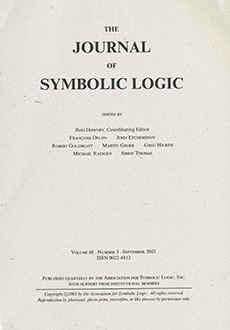Abstract
We show that the Turing degrees are not sufficient to measure the complexity of continuous functions on [0,1]. Computability of continuous real functions is a standard notion from computable analysis. However, no satisfactory theory of degrees of continuous functions exists. We introduce the continuous degrees and prove that they are a proper extension of the Turing degrees and a proper substructure of the enumeration degrees. Call continuous degrees which are not Turing degrees non-total. Several fundamental results are proved: a continuous function with non-total degree has no least degree representation, settling a question asked by Pour-El and Lempp; every non-computable f∈𝒞[0,1] computes a non-computable subset of ℕ; there is a non-total degree between Turing degrees a<T b iff b is a PA degree relative to a; 𝒮⊆ 2ℕ is a Scott set iff it is the collection of f-computable subsets of ℕ for some f∈𝒞[0,1] of non-total degree; and there are computably incomparable f,g∈𝒞[0,1] which compute exactly the same subsets of ℕ. Proofs draw from classical analysis and constructive analysis as well as from computability theory.
Citation
Joseph S. Miller. "Degrees of unsolvability of continuous functions." J. Symbolic Logic 69 (2) 555 - 584, June 2004. https://doi.org/10.2178/jsl/1082418543
Information





